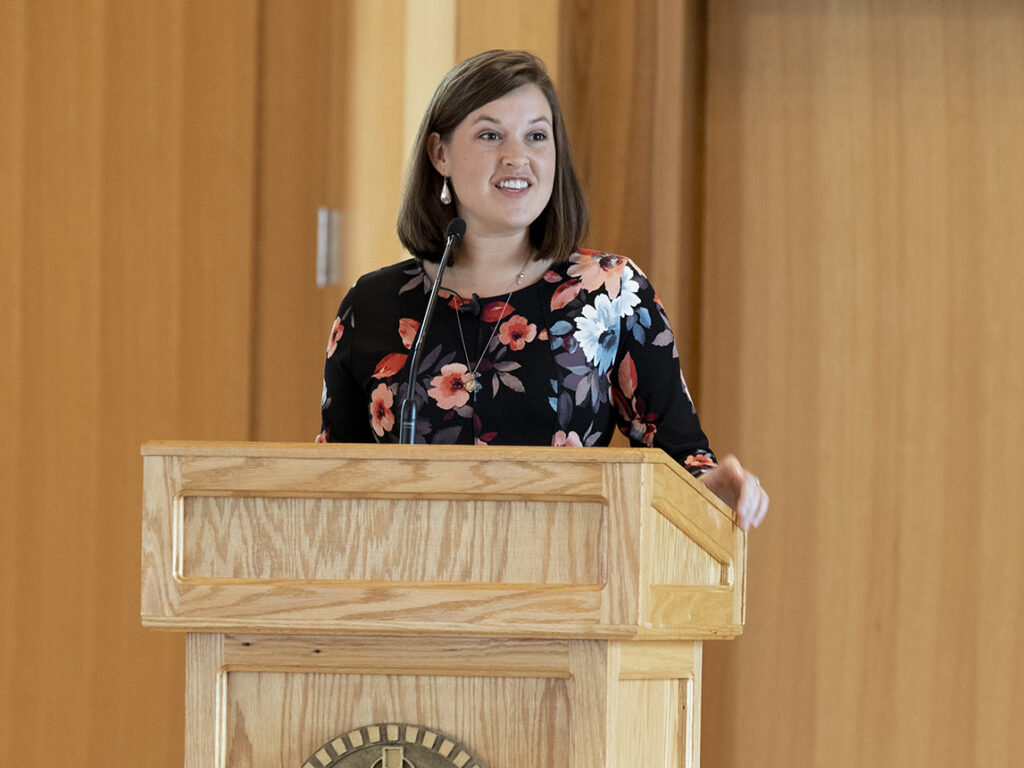Campus Minister: Even in the darkness, we rejoice

Yesterday was the fourth Sunday in the season of Lent. Lent is a 40-day season of reflection, prayer, fasting and repentance in preparation for the new life that comes with the resurrection of Christ at Easter. At the four-week mark we are halfway through what can feel like a dark season in the church year, but did you know that the fourth Sunday of Lent is also known as Rejoicing Sunday? Even in the darkness we are commanded to rejoice.
Rejoicing Sunday is named so because of the Old Testament reading assigned to this Sunday from Isaiah 66:10:
“Rejoice with Jerusalem and be glad for her,
all you who love her;
rejoice greatly with her,
all you who mourn over her.”
Have you rejoiced lately? I have not.
Last week I felt like I had weights in my shoes. Uncertainty seemed to be the overwhelming emotion for many and yet within my cloud of uncertainty, there was a profound sense of urgency. Go to the next meeting. Write the next email. Talk to the next person. Ask the next question. Think about the what-ifs and plan accordingly, but there was no “rejoice greatly” on my slow-motion to-do list.
The practice of finding joy in the midst of uncertainty can be difficult work. It may be something you have to put on your to-do list. This kind of rejoicing does not ignore or bypass the difficulty of the present. In fact, it’s quite the opposite. This kind of rejoicing acknowledges the difficulty of the days that we are living in, but even on the most difficult day it might still be possible to at least look for hope or experience moments of joy.
But finding this kind of joy will take practice. You will have to learn what joy feels like for you in these uncertain times, and together we will have to learn how to look for hope and rejoice with each other when we find it. While Lent, and these uncertain days, do seem to be a season categorized by darkness, what we learn in the dark should not be dismissed even in our search for joy. Joy, like its dark twin, grief, is a complex emotion.
The command to rejoice does something especially valuable for our Campbell community as we find ourselves isolated from one another. In her writing on rejoicing during sorrow, Kate Bowler, a writer, historian and incurable optimist, said “dwelling on our hurts for too long in isolation robs us of hope in the future, but far worse, it robs us of our investment in the precious present.”
Rejoicing brings us together in the precious present, not in spite of uncertainty, but because of it. It may take practice to learn what hope feels like to you on a difficult day, but you can find it, and when you do, we are all here to rejoice with you.
Take care and “see you” next Monday,
